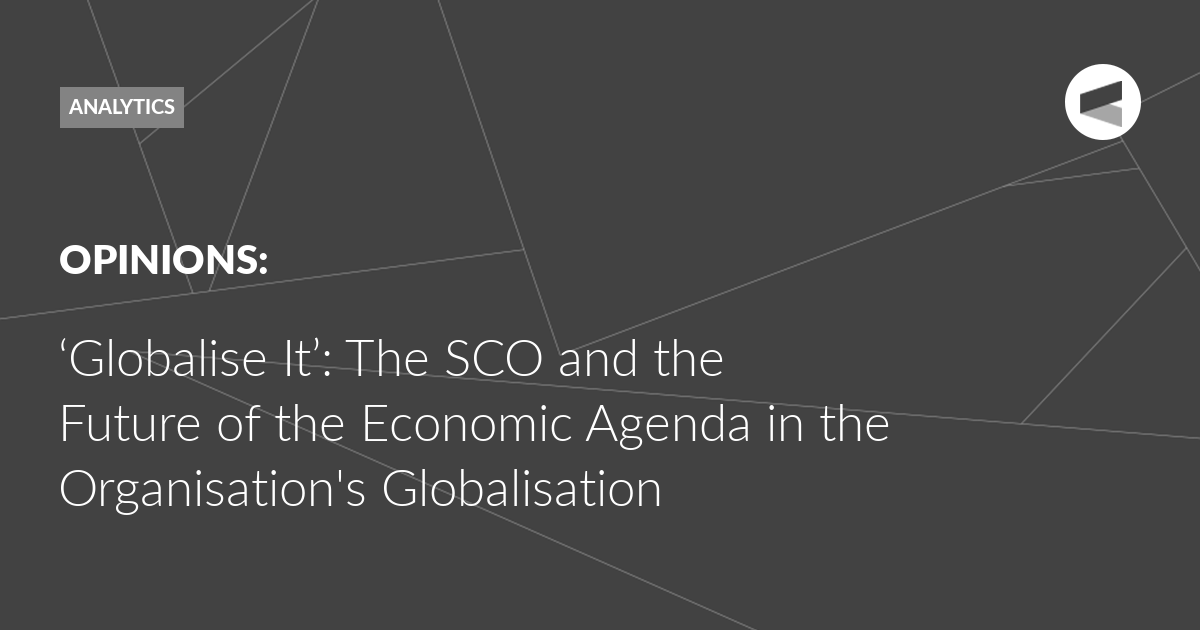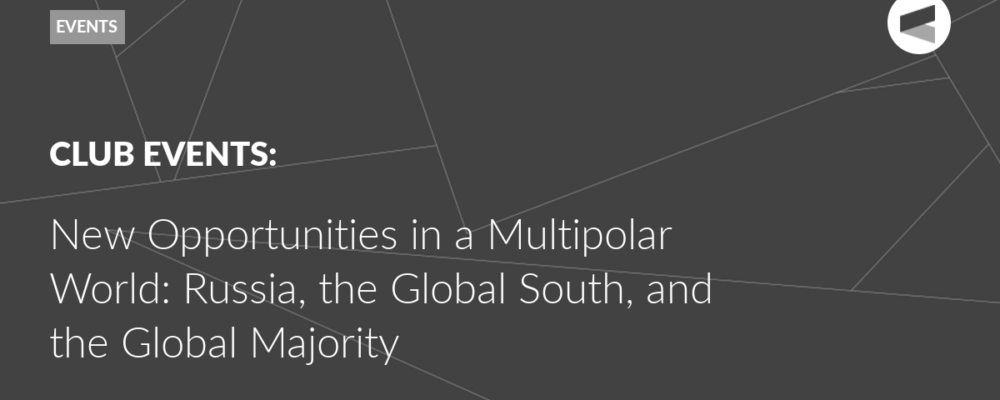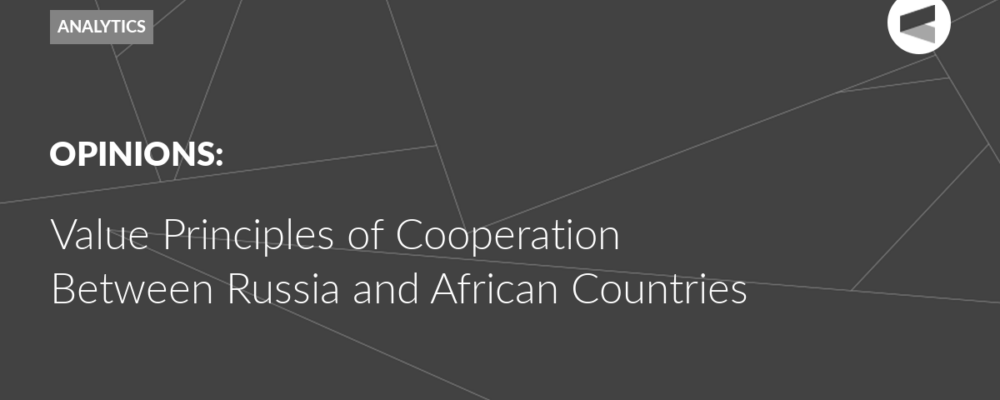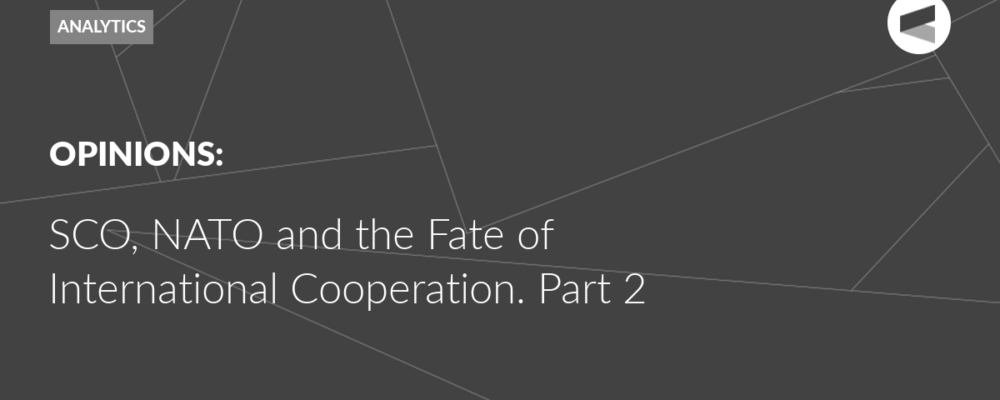For the Russian Federation, cooperation with partners in the Shanghai Cooperation Organisation (SCO) in multilateral and bilateral formats is one of the international priorities enshrined in the current Foreign Policy Concept of 2023 (hereinafter referred to as the FPC). Moreover, this not only details using the SCO’s potential to develop relations on the Eurasian continent, in particular, to form a broad integration circuit – the Greater Eurasian Partnership (Clause 54 of the FPC), but also to influence the international system by “facilitating the adaptation of the world order to the realities of a multipolar world” (Clause 19 of the FPC). As Russian President Vladimir Putin noted in his speech at the meeting of the SCO Heads of State Council, held on July 4, 2024 in Astana under the chairmanship of the Republic of Kazakhstan, “Russia gives high priority to partnership within the SCO. We can state with satisfaction that this cooperation continues to develop consistently based on the principles of equality, consideration for each other’s interests, respect for the cultural and civilisational diversity, and cooperation in addressing important security issues.”
The 2024 Astana SCO Summit not only summed up the results of Kazakhstan’s chairmanship of the institute, it also became a stage in the expansion of the organisation. The Republic of Belarus is significant partner for many countries in the EAEU and the CIS. Its accession to the SCO has not only increased the number of members and improved the “gross” economic indicators of the organisation, but also included a country with serious intellectual potential and production base in the contour of the trade and economic cooperation of this institution. After the completion of the process of Belarus’s accession to the organisation, four out of five (Russia, Kazakhstan, Kyrgyzstan, Belarus) states of the Eurasian Economic Union (EAEU) became its members. If we take into account the “extended contour” of the SCO, including dialogue partners (including Armenia), then all the EAEU countries work via this platform.
The dynamics of trade and economic cooperation of the SCO members is gradually accelerating. Russia’s trade turnover with the countries of the organisation in 2023 increased by an impressive 25% compared to 2022, amounting to 333 billion US dollars. This is consistent with global trends that show the prevailing and accelerated growth of cooperation within the framework of integration associations of both a regional and transregional nature (“subsystem level”). Taking into account the existing problems, with negotiability affecting key global institutions such as the World Trade Organisation, the following conclusion can be made. Institutions at the “subsystem level” will play an increasing role in determining the international “rules of the game” and the practical implementation of previously reached global agreements. Russian experts Shamil Enikeev, Alexander Lukin and Dmitry Novikov believe that the fundamental structural changes in the international environment which taking place today could become a factor in the deep transformation of the SCO and contribute to increasing its effectiveness.
The influence of the growing status of the SCO in the international arena largely confirms the corresponding idea of researchers. The organisation goes “beyond” the region, which is reflected in its agenda, acquiring more “transregional” and even global features. Although the SCO was initially created precisely to solve a set of regional security problems, constituting, if we turn to the constructivist direction of the theory of international relations, a regional security complex. The corresponding problems largely continue to determine the dynamics of interaction in the SCO today.
At the same time, the list of issues that are in the focus of the organisation’s attention is becoming ever wider. According to the Astana Declaration of the Council of Heads of State, “The Member States support the further improvement and reform of the global economic management architecture and will consistently defend and promote an open, transparent, fair, inclusive, non-discriminatory and multilateral trading system based on generally accepted international principles and rules, promoting the development of an open world economy, and ensuring fair access to markets, as well as special and differential treatment for developing countries.”
These steps reflect the dynamics of a multipolar world in which not only states but also multilateral institutions are seen as actors. The latter, although created by states and thus limited in their capabilities by a given institutional design, acquire special influence due to the limited ability of states to confront, independently, a number of acute challenges. This is especially true for regional and interregional network structures. The transfer of a significant volume of the “practical dynamics” of international cooperation to the level of regional (and interregional) networks in the context of the rigidity of the global level of interaction leads to a significant increase in the importance of international subsystems and relevant institutions. It would not be an exaggeration to say that the viability of the global system and its precarious balance depend on them today.
The importance of “subsystem levels” is growing for a number of reasons, including:
• the possibility of consolidating policies and concentrating resources to solve major development problems of a transboundary nature;
• reducing uncertainty, stabilising expectations and strengthening trust in relations between members, as well as with partners “outside” the relative institution;
• the formation of systemic “rules of the game” that help reduce transaction costs, at least in certain areas, which can help strengthen the global positions of the relevant institutions and their members.
“Remaining focused on drafting the SCO Development Strategy to 2035, the member states reaffirm their commitment to build up the potential and international influence of the Organisation as a key multilateral association of the multipolar world,” the SCO Astana Declaration says. The crisis of “global negotiability” in the situation of the existing “global interdependence”, on the one hand, leads to the spread (“spillover”) of negative trends from some regions to others. On the other hand, it stimulates the development of “non-universalised” solutions that reflect the specific conditions existing in individual countries and in individual spaces that are more integrated compared to external participants.
As a result, a unique dynamically developing system of interaction is formed on the basis of a set of effective solutions that promote mutually beneficial and equal exchange between individual participants in international relations. That is, a basis is being created for systemic multipolarity and practical multilateralism, less interdependent at the global level, but more interconnection in the context of the development of regional and interregional subsystems. A significant role in this is played by leading international associations working in accordance with the principles of transparency and inclusiveness, such as the SCO and BRICS. As Russian President Vladimir Putin noted in his speech at the Astana summit: “We firmly believe that the Shanghai Cooperation Organisation and BRICS are the main pillars of this new world order. These associations are powerful drivers of global development processes and the establishment of genuine multipolarity.”
The SCO can strengthen its position as an important element of the international system working on new principles. As stated in the Astana Declaration, “The Member States declare that the SCO is an important participant of the international interaction system and makes a significant contribution to regional security, sustainability and the growth of the global economy, healthy lifestyles and a green environment, and the promotion of social, cultural, sports and scientific ties between the SCO countries.”
At the same time, this document makes a claim regarding the greater systemic influence of the organisation: “The Member States support the further improvement and reform of the global economic management architecture and will consistently defend and promote an open, transparent, fair, inclusive, non-discriminatory and multilateral trading system based on generally accepted international principles and rules, promoting the development of an open world economy, and ensuring fair access to markets, as well as special and differential treatment for developing countries.”
At the same time, the SCO members do not seek to reform the international system “through revolution,” preferring to emphasise the importance of maintaining its stability and strengthening a fair competitive environment, i.e. they advocate stage-by-stage development. “They also speak against any protectionist measures, unilateral sanctions, and trade restrictions that undermine the multilateral trading system and impedes global sustainable development…. The Member States emphasised that the unilateral adoption of sanctions is incompatible with the principles of international law and has a negative impact on third countries and international economic relations.”
The successful resolution of the relevant tasks requires the building of effective interaction with key multilateral institutions of international cooperation, such as the UN. Thus, at the initiative and under the chairmanship of the Russian Federation, a debate on the issues of UN cooperation with regional and subregional organisations to maintain peace and stability was held in the UN Security Council on July 19, 2024. The meeting was attended by SCO representatives, including Secretary General Zhang Ming.
At the same time, in the context of strengthening the global status of the SCO, the economic dimension of cooperation is acquiring special significance. “In the new geopolitical situation, when it is extremely necessary to preserve all the positive things that the SCO has achieved over the two decades of its existence, the task of intensifying multilateral economic cooperation comes to the fore,” write Shamil Enikeev, Alexander Lukin and Dmitry Novikov. [Enikeev Sh. M., Lukin A. V., Novikov D. P. op. cit.] Former Secretary General of the organisation Rashid Alimov agrees with this idea, emphasising that “the SCO Development Strategy for the coming ten-year period should be primarily focused on the effective impact of practical interaction between the states included in the SCO ‘family’ and become the expected response to the key international challenges facing the Organisation in the foreseeable ten-year period.”
However, fixing one’s own ambitions “on paper” requires confirmation “in practice” and achieving serious applied results. Thus, counteracting unilateral sanctions requires, in addition to recognising the fact of their illegality, effective joint steps by the organisation’s member countries. At the same time, despite a fairly large volume of activity, the SCO’s achievements with respect to economic policy do not fully correspond to the organisation’s potential. In this regard, it is appropriate to refer to the assessment of cooperation in this area given by Kazakhstan’s President Tokayev at a meeting of the SCO Heads of State Council in 2023 on the eve of his country’s chairmanship of the organisation: “It should be recognised that for more than 20 years not a single major economic project has been implemented under the auspices of the SCO. An obvious factor is the lack of mechanisms for the financial support of project activities.”
Rashid Alimov adds that “work on developing a ‘formula’ for creating a mechanism for financial support for the Organisation’s project activities has been delayed for an unjustifiably long time. There are still many ‘red flags’ on the road map for gradually increasing the share of national currencies in the mutual settlements of the SCO member states. The mechanisms of interaction in the fields of energy, industry and new technologies, where there is significant potential for joint development, are not fully operational. There is dissatisfaction with the pace of implementation of the programme to stimulate industrial cooperation between business circles. Full-fledged cooperation in the field of trade and economics, along with other reasons, is hampered by the slow development of transport infrastructure and connectivity of roads and railways between the SCO member states. However, as we know, there are no miracles in economics, and only those who walk can make it to the end of a long road.”
An additional aspect that I would like to draw special attention to is the need to ensure a “holistic approach” to the development of multilateral cooperation in the organisation, which is not a simple sum of bilateral interactions. Unfortunately, even the most sophisticated experts and politicians often cite the rates of economic growth of their members or the share of their economies in global GDP as justification for the effectiveness of international institutions. At the same time, no explanation is given regarding how the positive dynamics are related to the work of the relative international institution. Of course, identifying and interpreting the correlation between membership in an international organisation and an improvement in the economy of the country is a particularly difficult task. But without attempts to solve it, outside observers, and not only them, often form an incorrect idea of the effectiveness (or ineffectiveness) of the relevant multilateral international formats. The SCO is no exception in this context.
The Valdai Discussion Club was established in 2004. It is named after Lake Valdai, which is located close to Veliky Novgorod, where the Club’s first meeting took place.
Please visit the firm link to site






